When I was a very young child of three or four, I would fall asleep by imagining eternity. Each night, I allowed myself to fall into a state of reverie that moved my awareness into spaces without boundaries. I followed the trajectory of eternity to discover its pattern. I learned that Eternity had no ending or beginning. I enjoyed the journey until sleep overcame me or I chose to return to my ordinary awareness. I had no words to describe the state, nor did I ever speak about it to anyone. The experience was both awesome and frightening. I was not always sure I would come back from the distances I traveled each night, yet I did not stop.
I was curious about death as well and discovered that it did not exist within the state of the eternal. I somehow knew I could understand the eternal by entering this state, so I fearlessly continued to do it. This exhilarating practice lasted until I was about eight or so and then suddenly stopped. What lingered was a sense of the cosmic, of the ineffable.
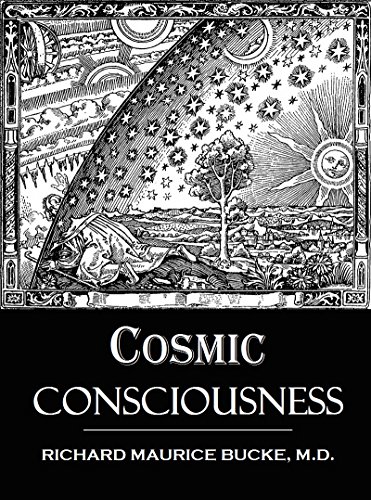 I first came across the term “cosmic consciousness” while teaching a course in Alterations in Consciousness at King’s College at the University of Western Ontario, now re-named Western University in London, Ontario. I was intrigued by the notion and soon discovered the book Cosmic Consciousness: A Study in the Evolution of the Human Mind by a Canadian psychiatrist Maurice Bucke, who lived from 1837 to 1902. To my delight, I learned that Bucke had been a close friend of one of my favourite poets, Walt Whitman, and had written Whitman’s first biography in 1883, the only biography ever authorized by Whitman. In fact, in 1880, Whitman had spent time with Bucke in London Ontario where Bucke oversaw an insane asylum among his other medical appointments. This event is dramatized in the film “Beautiful Dreamers.”
I first came across the term “cosmic consciousness” while teaching a course in Alterations in Consciousness at King’s College at the University of Western Ontario, now re-named Western University in London, Ontario. I was intrigued by the notion and soon discovered the book Cosmic Consciousness: A Study in the Evolution of the Human Mind by a Canadian psychiatrist Maurice Bucke, who lived from 1837 to 1902. To my delight, I learned that Bucke had been a close friend of one of my favourite poets, Walt Whitman, and had written Whitman’s first biography in 1883, the only biography ever authorized by Whitman. In fact, in 1880, Whitman had spent time with Bucke in London Ontario where Bucke oversaw an insane asylum among his other medical appointments. This event is dramatized in the film “Beautiful Dreamers.”
As I read the book, I remembered my childhood experience of falling into the eternal. Bucke wrote that in this state of exalted consciousness one experiences mystical illumination. He identifies many people, a number of them quite ordinary, who entered the exalted state for periods of time. They experienced a profound awareness “of life and order in the universe,” “a state of moral exaltation,” and “a sense of immortality.” It felt as if he were speaking about my childhood adventure in consciousness, of which I had mere glimpses as I grew older and began meditation practice.
Bucke also believed that cosmic consciousness is the next evolutionary stage of an awakening human being, a new faculty of being human. It was for him a revolution of the psyche. Bucke writes: “…Cosmic consciousness is a third form which is as far above Self Consciousness as is that above Simple Consciousness…but added to them this is a new faculty. The prime characteristic of cosmic consciousness is, as its name implies, a consciousness of the cosmos that is of the life and order of the universe. He adds that this form of consciousness would make a human being “almost a member of a new species.”
These words echo the later ideas of Abraham Maslow who described his work in the development of Third Force Psychology (or humanistic psychology) as a state of consciousness that defines a new faculty of a new human, a sense of Beingness not Becoming. Maslow wrote that the “… third force is developing a new image of man…” I note the similarities between Bucke’s analysis of a psychic revolution in consciousness and the study of the human psyche undertaken by Maslow and others in Humanistic and Transpersonal psychology. Both identified a psychic evolution towards a third force, a third level of awareness.
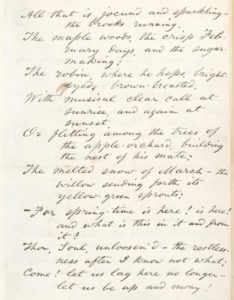
Excerpt of Whitman poem.
Early in the spring of 1873, Bucke describes that he himself briefly entered the state of mystical illumination after an evening of reading, with friends, the poetry of William Wordsworth, Percy Bysshe Shelley, John Keats, Robert Browning, and especially the poetry of Walt Whitman. Though it did not last long, it spurred him to try to understand and document this exalted experience in consciousness.
Bucke believed this altered state was deeply evident in such people as Buddha, Moses, Socrates, Jesus, and Mohammed, as well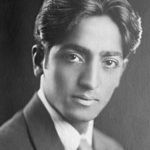 as in such poets as Dante, Wordsworth, and others, particularly Whitman. I suggest that Eastern poets such as Rumi, Hafiz, Kabir, and the ninth century poetic mystic Rabia of Basra as well as Krishnamurti and some Chinese poets such as Tu-Fu also entered this state during parts of their life.
as in such poets as Dante, Wordsworth, and others, particularly Whitman. I suggest that Eastern poets such as Rumi, Hafiz, Kabir, and the ninth century poetic mystic Rabia of Basra as well as Krishnamurti and some Chinese poets such as Tu-Fu also entered this state during parts of their life.
I suspect that many uncountable people throughout history and in present times have had and continue to have this cosmic experience. These people enjoy a profound awareness that emerges suddenly as a moment of enlightenment, leaving them with a quality of illuminated vision about the relationship of reality to the eternal and the divine. This is the state of clear perception, of deep seeing, feeling and knowing from a higher dimension of being. It is the signature of the evolutionary consciousness towards which humans are heading.

Bucke asserted that Cosmic Consciousness removes all doubts about God and the purpose of life. The state dissolves one’s awareness into a sudden revelation of universal truth and beauty. He believed that this spiritual awakening is Humanity’s “Saviour.” Under its influence, a person’s soul will be transformed to understand that the whole universe is alive and good. All religions will melt into one powerful state of heightened spiritual awareness: a state which Buddha called Nirvana, Jesus called the Kingdom of God, St. Paul called Christ, Mohammed called Gabriel, Dante called Beatrice, and Whitman called My Soul. In brief, it is the redemptive state of deep understanding of the nature of reality– what Robert Heinlein named “grokking.” There is a sense of immortality and a consciousness of eternal life in this exalted state.
In Bucke’s view, Whitman clearly revealed his own moment of cosmic illumination in section 5 of “Song of Myself.” Passages in other Whitman poems also describe the dramatic revelation during which he ecstatically discovers the mystical interconnection of everything in the universe and the love, both erotic and divine, which is the basis of all existence. The whole poem is a celebration of a higher state of conscious awareness expressed through the power of poesis—using imagery and words.
5
I believe in you my soul, the other I am must not abase itself to you,
And you must not be abased to the other.
Loafe with me on the grass, loose the stop from your throat,
Not words, not music or rhyme I want, not custom or lecture, not even the best,
Only the lull I like, the hum of your valvèd voice.
I mind how once we lay such a transparent summer morning,
How you settled your head athwart my hips and gently turn’d over upon me,
And parted the shirt from my bosom-bone, and plunged your tongue to my bare-stript heart,
And reach’d till you felt my beard, and reach’d till you held my feet.
Swiftly arose and spread around me the peace and knowledge that pass all the argument of the earth,
And I know that the hand of God is the promise of my own,
And I know that the spirit of God is the brother of my own,
And that all the men ever born are also my brothers, and the women my sisters and lovers,
And that a kelson of the creation is love,
And limitless are leaves stiff or drooping in the fields,
And brown ants in the little wells beneath them,
And mossy scabs of the worm fence, heap’d stones, elder, mullein and poke-weed.

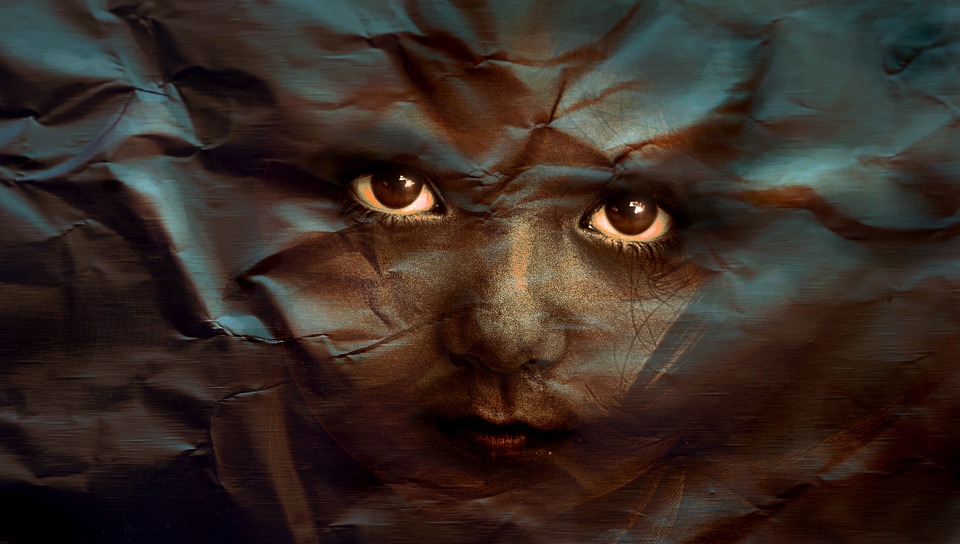
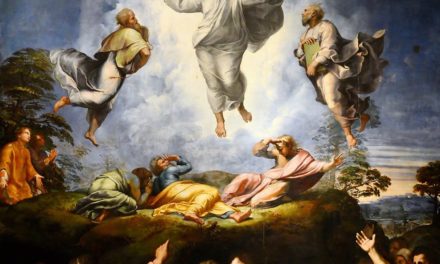
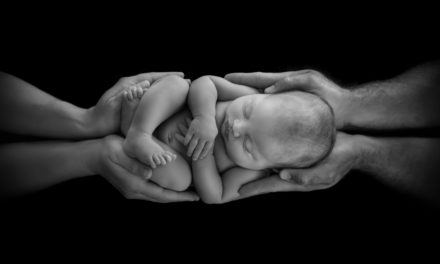
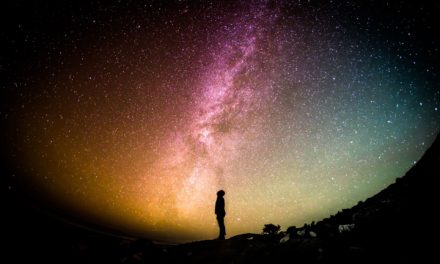
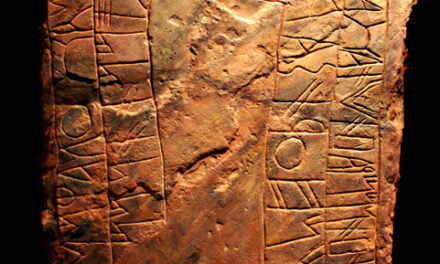

Thank you. Something about your reflection moves me. I’ve kept it open in my email and would love to share it. When I discovered Walt Whitman I felt him as a brother. I am so grateful for writers who lift up the wisdom of body and soul. Theopoetics. Theokinetics. Terrains of love.